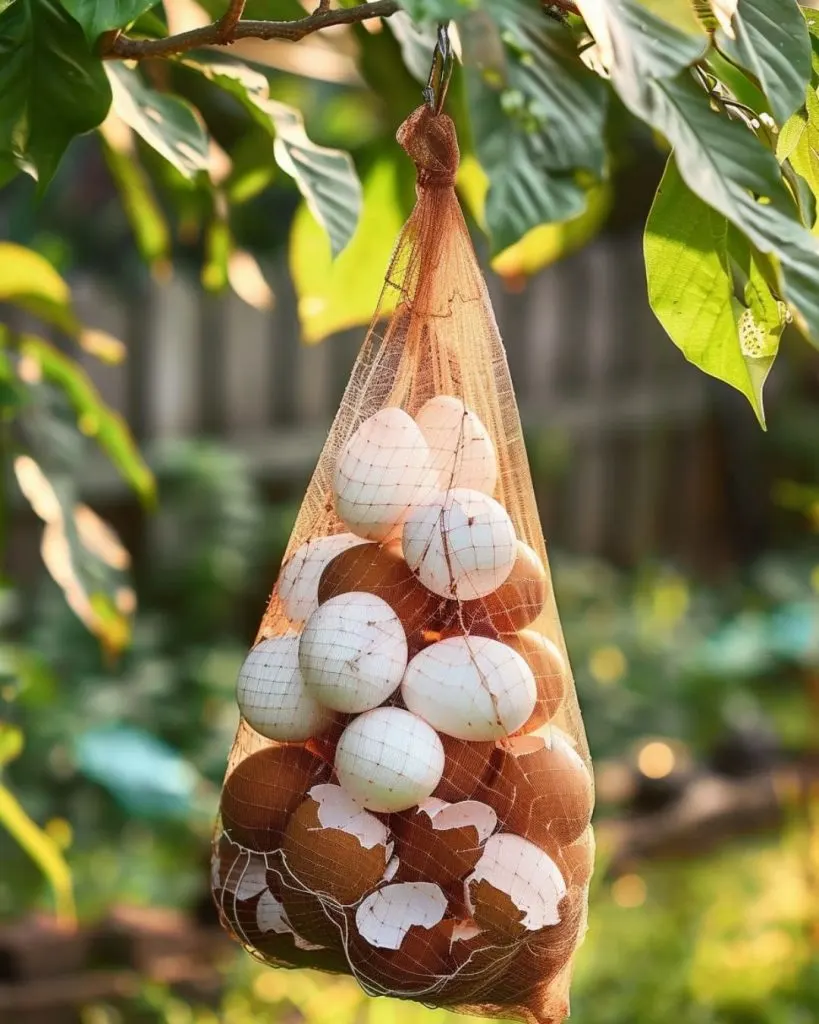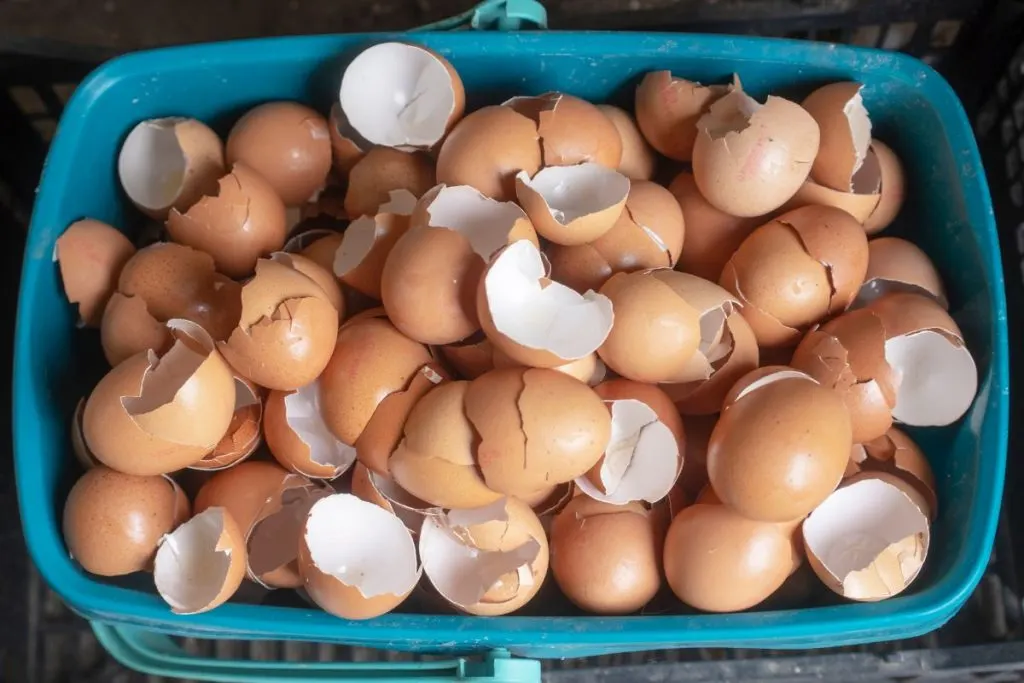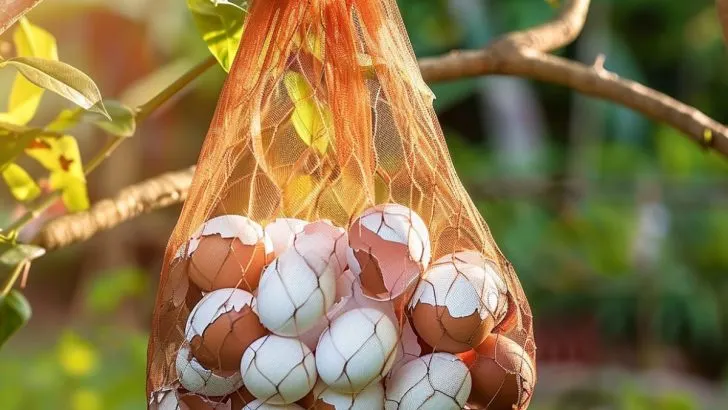Sustainable and eco-friendly gardening practices are gaining popularity as more people strive to minimize their environmental impact while maximizing the health and productivity of their gardens. Incorporating natural and environmentally conscious methods can be both effective and rewarding.
One such method involves the use of a seemingly ordinary kitchen waste product: eggshells. Hanging a mesh bag filled with eggshells in your garden may offer a range of benefits that you might not have considered.
Intrigued? You should be. In this article, you’ll discover why this simple technique is becoming increasingly popular among both seasoned gardeners and beginners alike. From enriching the soil with nutrients to deterring pests, the benefits might just surprise you.
Read on to learn how you can use this simple trick to enhance the health and productivity of your garden.
1. Enrich Your Soil with Nutrients

Eggshells are rich in calcium, an essential nutrient for plants. As eggshells decompose, they slowly release calcium, which strengthens the cell walls of plants. This can lead to sturdier plants and higher yields, especially for vegetables like tomatoes, peppers, and cucumbers, which require calcium to prevent issues like blossom end rot.
Gardening Tip: Crush the eggshells before placing them in the mesh bag to increase their surface area, allowing them to decompose more quickly and release nutrients into the soil faster.
2. Naturally Repel Pests
Crushed eggshells can act as a natural deterrent against pests like slugs and snails. The sharp edges of the crushed shells are uncomfortable for these soft-bodied creatures to crawl over, helping to protect your plants without the use of harmful chemicals.
Pro Tip: Spread a ring of crushed eggshells around the base of vulnerable plants, or simply scatter them around your garden beds to keep these pests at bay.
3. Boost Your Compost

Eggshells are an excellent source of calcium for your compost, which is essential for the microbial activity that breaks down organic matter. Adding eggshells to your compost bin can help speed up the composting process and improve the quality of the compost produced.
Composting Advice: Make sure to crush the eggshells before adding them to the compost to ensure they break down more easily and evenly distribute their nutrients.
4. Balance Soil pH Naturally
The calcium carbonate in eggshells can help neutralize acidic soil, making it more alkaline. This is particularly beneficial for plants that thrive in a balanced or slightly alkaline pH, such as lilacs, clematis, and many leafy greens.
Soil Tip: If you’re dealing with acidic soil, consider adding crushed eggshells directly to the soil or compost to help balance the pH over time. However, always test your soil’s pH first to determine the right amount of eggshells needed.
5. Reduce Waste and Promote Sustainability
By repurposing eggshells in your garden, you’re reducing kitchen waste that would otherwise end up in a landfill. This small step contributes to a more sustainable lifestyle and environmentally friendly gardening practices.
Eco-Friendly Tip: In addition to using eggshells, consider other kitchen scraps like coffee grounds and vegetable peels to further enrich your garden and reduce waste.
How to Get Started
Implementing this technique is simple and requires minimal effort. Collect your eggshells, allow them to dry, lightly crush them, and place them in a mesh bag. Hang the bag in a suitable spot in your garden where it can slowly release its benefits. Your plants and the environment will thank you!
A Small Step for Big Benefits
Using eggshells in your garden is an easy, cost-effective way to improve soil health, deter pests, and support sustainable gardening practices. With just a little effort, you can turn what might have been waste into a valuable resource for your garden.
So why not give it a try? Your garden’s health and productivity could see significant benefits from this simple, natural method.

